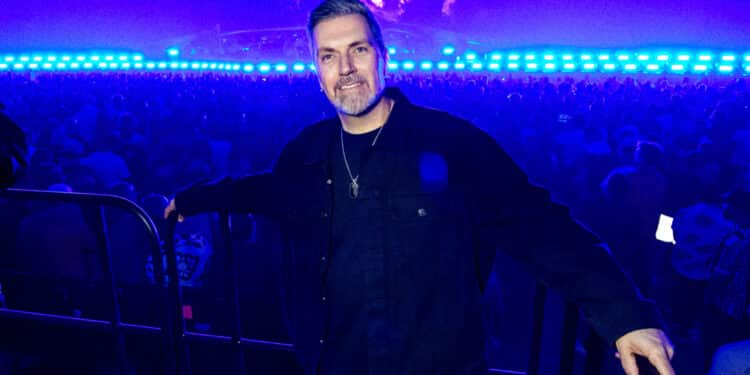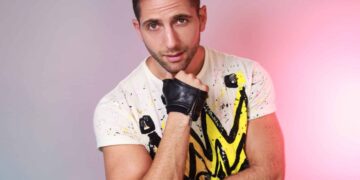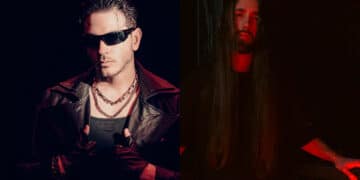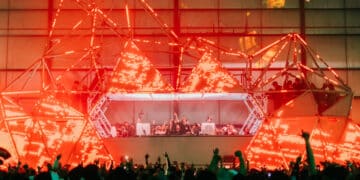After a number of successful livestream events, SoundStage CEO Ara Kevonian discusses their growth and what’s to come in the future.
As the entire music industry continues to explore and finesse their advancements in the virtual realm due to the ongoing pandemic, SoundStage and CEO Ara Kevonian are looking to connect fans and artists on a deeper level. Founded in 2019, the company’s first successful livestream actually pre-dates the most recent push into the digital frontier that has since become a gold rush for artists looking to keep their listeners grooving to the beat.
Unlike platforms like YouTube, Twitch, or Facebook, SoundStage prides itself on the intimate, interconnected experiences it delivers with each show. It’s engaging to the core, as artists who have partnered with the platform can be requested by fans for private shows with their friends while other interactive elements like Meet & Greets are common as well.
The past two months have seen notable artists like Firebeatz, Kill Paris, ill.GATES, Jayceeoh, and Kraddy among others take the virtual stage on the platform as SoundStage continues to grow. Their next livestream event is set to take place on November 12 with Deepend playing a set, so make sure to head over to the Facebook Event Page or their website to get more details on that show.
Now, after these successful editions, Ara Kevonian took some time to reflect on their growth this year, the hurdles they’ve faced due to the ongoing pandemic, and where he plans to take SoundStage in the future. Check out the replay of Kill Paris’ set below and read on for the full conversation!
Watch the replay of the Kill Paris Livesteam on SoundStage.fm via YouTube:
Hi Ara, thanks so much for chatting with us today. Let’s start off by digging a bit into the backstory behind SoundStage since the launch pre-dates the boom of livestreaming we’re currently experiencing. Where did the initial idea stem from to create the platform?
I grew up in Los Angeles and spent most of my twenties being exposed to a flourishing scene full of great electronic music. In 2013 I moved to Spain and discovered that the genres of electronica I liked didn’t really exist out here. The artists I liked rarely toured out here, and for a hardcore electronic-music lover like myself, this was a tough bill to swallow. Not to mention, I love and appreciate the artists who make the music I listen to so very much, that I’ve always yearned for opportunities to meet them, and to learn who they really are as people.
One day the thought popped into my mind that maybe I could book a private show from one of the artists I really like, and instead of having them fly out here, maybe they can just perform remotely.
Taken at face value this idea sounds a lot like a live stream, but the vision I had was for this to be a fully interactive experience where the artist could appear into my living room on my TV, or on a projector in my backyard, for let’s say my birthday, and me and my friends could meet the artist and get to know each other a little, and then enjoy an awesome set from him/her.
This was the original vision behind SoundStage; to ”teleport” artists so to speak, and to have experiences that are intimate, almost as if the artist is right there with you.
Can you share what the process was like from conceptualization to launch? How long did that take?
In the beginning, I was convinced that there was no real need to develop technology and that all we would need was a simple website and artist directory to capture bookings. Having seen how Zoom and Skype and all these mature video conferencing systems had been used in business settings so successfully for years, I assumed all we needed to do was book a few artists and run them through Zoom, which is what we originally tried, but it did not go well.
We threw a party and booked three different artists to go back to back, and even though we ran extensive and grueling tests beforehand, and thought things would go smoothly, during the event only one artist managed to perform their entire set with more or less acceptable audio quality.
After this event, we tried testing a host of other video conferencing solutions, and none of them really met our needs. We realized that the video conferencing software available on the market was never really intended for musical performances, and was primarily engineered for voice communications, so we set out to develop our own.
After two months of hard work and testing, we released our own software called StageLink, which we used to run our first flawless first virtual performance in October of 2019, and you can check out some footage of that event here.
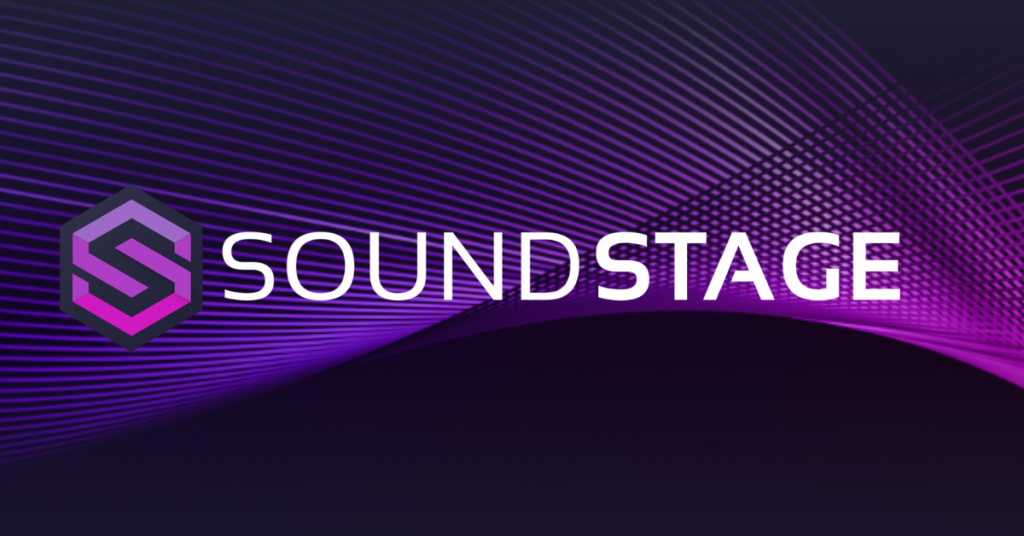
How did the pandemic affect the growth and development of SoundStage? Have you faced any hurdles during this time?
Hurdles is an understatement. The pandemic had profound implications for us and shaped our vision into something far larger than we originally intended.
Right at the start of the pandemic it seemed that virtual performances could be a great way to help the industry in navigating around venue closures, since with our solution you could still have artists perform remotely for small audiences even if it was in their own homes; and without all the travel and logistical overhead, the numbers could still work out.
Unfortunately, COVID turned out to be so problematic that even the smallest gatherings became health risks, and because of that, even virtual performances didn’t quite fit into the new landscape.
Meanwhile, from one day to the next, it seemed artists flocked to livestreaming in droves, flooding social media with massive amounts of livestreams, and this actually hurt us in a big way. With all of that livestreaming, getting our message out and trying to show the world how we were different became difficult. Although virtual performances are very different from livestreams, the simple fact is many people will easily confuse the two, and with all those livestreams going on, and social gatherings capped, it became clear that the timing wasn’t right for virtual performances.
The month of March became a very reflexive one for us as we observed and synthesized the fast pace at which our world was changing, and tried to understand where things were going, and how we could fit into this new reality. After much meditation, we settled on a new vision, which was to create a broader platform for delivering a range of virtual experiences, where virtual performances could co-exist along with live streams (and some of the other ideas we had been incubating).
In August, we relaunched as the new SoundStage that you see today, and since then we’ve run a number of awesome live stream events where fans gain exclusive opportunities to meet the artists they love, and to experience them in a range of different ways.
One of the biggest concerns for many right now on streaming platforms are copyright issues. Since many artists in the dance music scene do not play sets fully featuring their own music, what’s SoundStage’s approach to this?
We’ve always been aware that navigating music copyrights is a risky affair, but this is a question that we had asked ourselves in the earliest days of our venture, and our approach remains unchanged.
We’re a platform for creating proximity between fans and artists, and when fans book a virtual performance or come to watch an artist perform on SoundStage, they’re expecting to hear that artist’s music and not a DJ set. By asking artists to play original content, we not only make fans happier, but we virtually eliminate our exposure to copyright violations.
Taken a step further SoundStage isn’t an open streaming platform like Twitch or Facebook. We sponsor specific artists and co-produce their livestreams in order to ensure that we’re running the highest quality events we can. This direct involvement in event production means we can work with the artists to mitigate potential copyright issues right out the gates.
In the sea of livestreaming platforms that have popped up since the beginning of the pandemic, what do you feel makes SoundStage stand out from the rest?
One of the things we’ve observed over the past six months is that the explosion of DJ livestreams on all these platforms has not exactly been a boon for the industry. Performing real shows, and performing over livestream are very different concepts. When quarantine struck, everyone jumped right into livestreaming without fully understanding this new paradigm, and not knowing how to leverage it.
All this led to a landscape over saturated with variable quality live streams whose entertainment value was in many cases highly limited. This is evidenced by the fact that most livestream events have generated very small amounts of revenue, and many artists are already burned out from performing them.
What makes SoundStage different is our philosophy that livestreams should be used as a means to create proximity between fans and artists, rather than simply become a music listening experience. While music is a part of it, we believe that showing the artists human side is just as important, and to allow fans to feel connected to the artist on a human level.
We also believe that livestreams should be live (not pre-recorded), that quality is better than quantity (stream less, but do it right), and that artists should embrace the audience as a part of the event rather than as passive observers. This means engaging with audience members in preshow chats, it means engaging them in post-show Q&A’s, it means showing up and being present for them just as the fans are showing up and being present for the artists.
In doing this, we are looking at a completely different value proposition for the livestream, which an artist’s REAL fans will genuinely appreciate. We then use these events as a stepping stone to educate fans and pitch them on other experiences they can acquire, such as Photo Ops, Meet & Greets, or even a Virtual Performance.
You’ve already begun to pick up a number of fantastic artists like Firebeatz, ill.Gates, Kraddy, and Kill Paris on the roster with more being added constantly. How do you decide which artists to feature on the platform?
We’re trying to find artists with loyal fan bases that appreciate the artists not just for their music, but for their human side as well. One example is Kill Paris, who is known by many as “the world’s friendliest DJ”, and it’s for good reason, because he embraces every possible opportunity to give his fans the time of day. He loves talking with them, he loves hugging them, and he always sticks around after shows to hang out with them.
Another great example is ill.GATES who made huge contributions towards creating his own platform (ProducerDojo) to help smaller artists develop their skills and careers. This has earned him tremendous respect and admiration from fans and artists alike.
SoundStage experiences are predicated on human connection, and we want to feature artists that will actually embrace the opportunity to connect and give back to their fans.
How can artists or other brands in the scene get involved with SoundStage who might be on the hunt for a new platform to perform on?
Send us an email. We’re eager to experiment and try new things, and very open to collaborations, so say hello and let’s see where the conversation takes us.
Finally, where do you hope to take SoundStage in the future? Are there any exciting new additions or features coming that you’re excited for?
It seems innovation is on steroids all over the sector right now, and every day we’re inspired by new ideas. Technology is moving at an incredible pace, and we’re seeing wonderful synergies between live streams, virtual production technology, 3D stages, spatial experiences, and the list goes on.
All of these possibilities continue to breathe ideas into our roadmap, and although I don’t have anything specific I can cite right now, I will say that the future is teeming with potential, and we can’t wait to see where the road leads.



